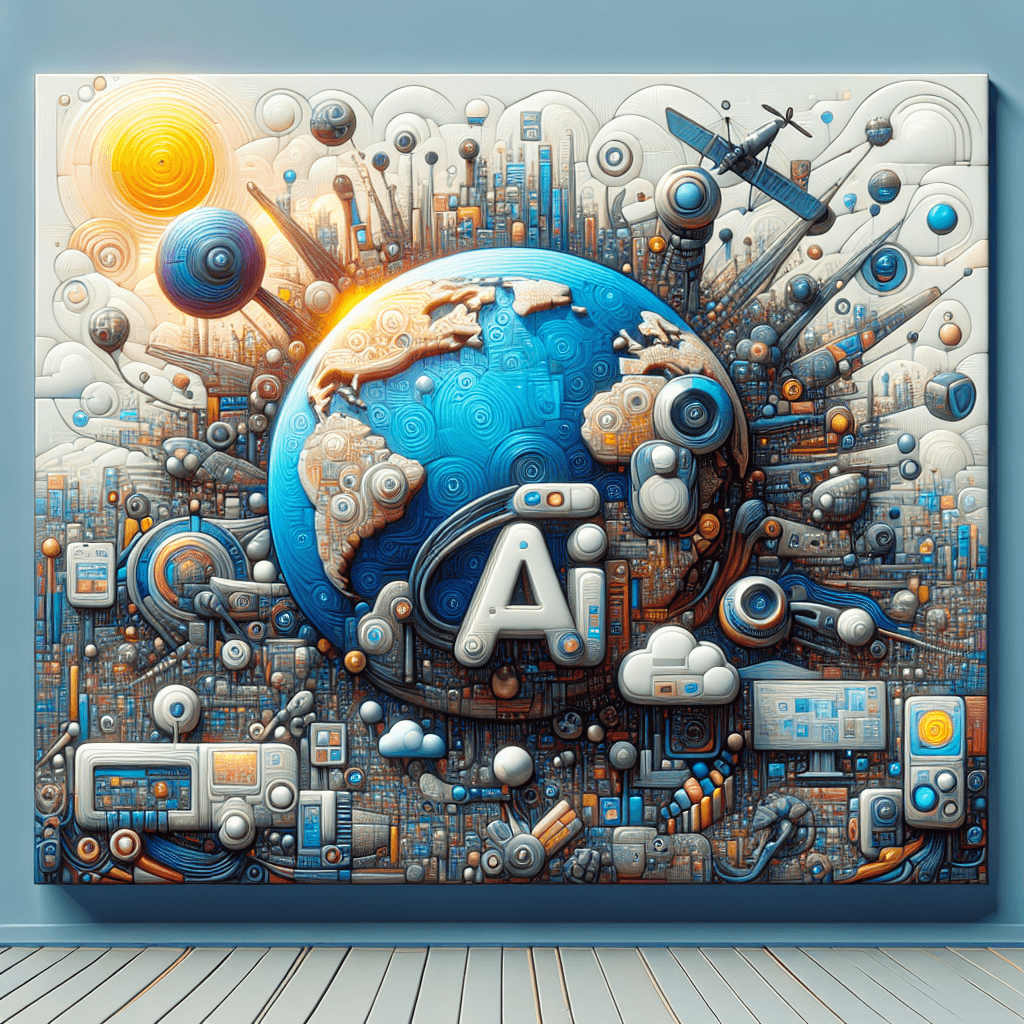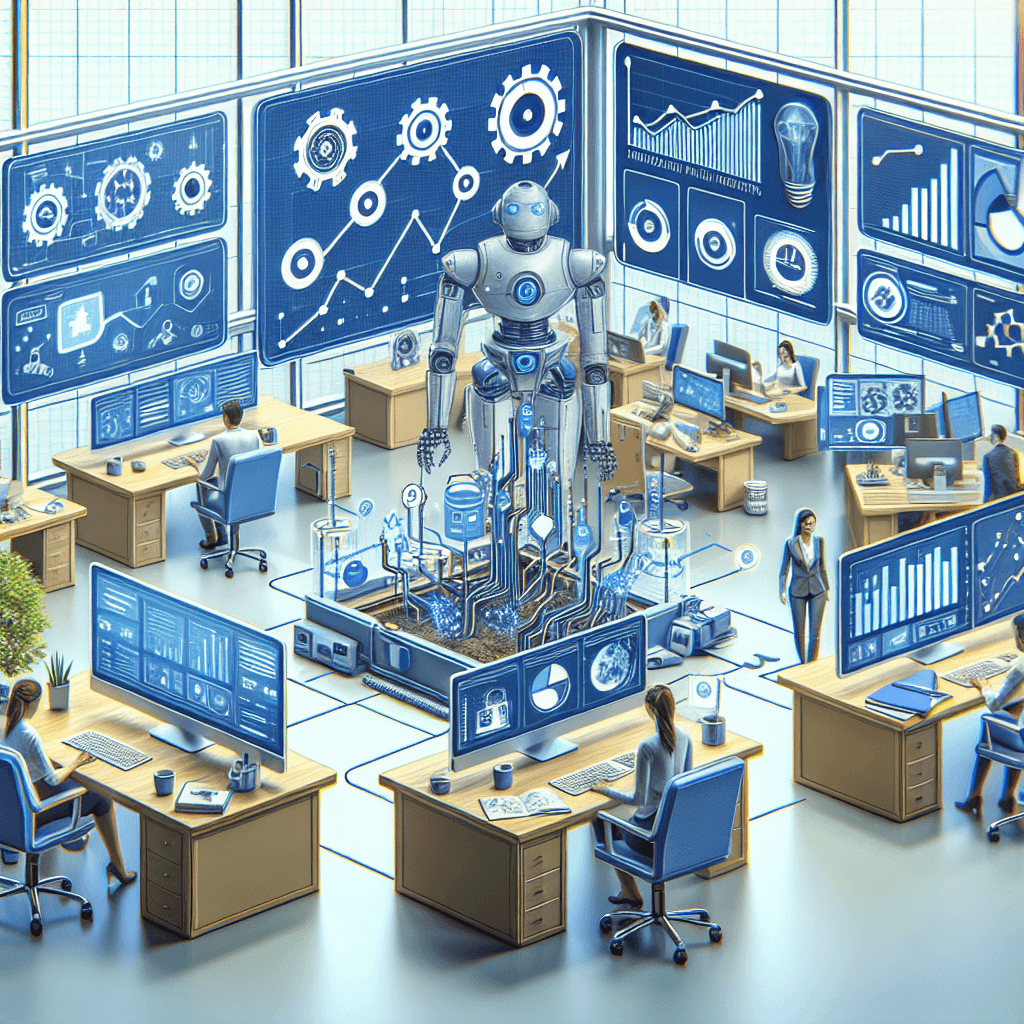Introduction
In a world where technology seems to advance at the speed of light, the question on everyone’s mind is: Will AI take over the world? This inquiry has sparked countless debates among tech enthusiasts, skeptics, and professionals globally. The pervasive nature of AI across various sectors has made it a focal point for discussions about the future of jobs, industries, and human roles in society. But before we leap to conclusions, let’s delve into the heart of this matter, examining both sides of the coin.
- The Rise of AI: A Technological Marvel or a Looming Threat?
- AI’s Role in Modern Society
- Can AI Replace Human Jobs?
- The Ethical Implications of AI Dominance
- Conclusion: A Balanced Perspective
The Rise of AI: A Technological Marvel or a Looming Threat?
Imagine a world where machines think, learn, and evolve much like humans. This is not just a scene from a science fiction movie; it’s rapidly becoming our reality. Artificial Intelligence (AI) has emerged as a powerful force driving innovation in areas ranging from healthcare to finance. However, this meteoric rise also raises questions about its implications. Is AI the savior that will lead us to a utopian future, or is it an unstoppable juggernaut poised to dominate all aspects of life? For more context, consider the ongoing debate about whether AI can replace salespeople.
AI’s Role in Modern Society
Today, AI is revolutionizing how we interact with technology. From AI-driven personal assistants to sophisticated algorithms predicting consumer behavior, the integration of AI into our everyday lives is undeniable. Its ability to process vast amounts of data quickly and accurately makes it indispensable. Yet, as we embrace these advancements, we must ponder: Are we relinquishing too much control? The influence of AI in marketing spheres is evident, as explored in articles like Is AI taking over marketing?.
Can AI Replace Human Jobs?
A common concern surrounding AI is its potential to replace human jobs. Automation and AI have already transformed industries by optimizing processes and reducing costs. However, this evolution brings forth fears about job security. Will AI render certain professions obsolete? While some roles may be automated, others will evolve, demanding new skills and expertise. As we navigate this transition, understanding how AI can replace salesmen offers insights into potential industry shifts.
The Ethical Implications of AI Dominance
The ethical landscape of AI is complex and multifaceted. As machines gain autonomy, ethical considerations around bias, privacy, and decision-making become paramount. How do we ensure that AI systems are fair and unbiased? What safeguards must be implemented to protect individual privacy? These questions underscore the need for robust policies and regulations governing AI deployment. For authoritative perspectives on these issues, resources such as the Ethics of Artificial Intelligence provide valuable insights.
Conclusion: A Balanced Perspective
As we stand at the crossroads of technological advancement and ethical responsibility, one thing is clear: AI’s future is intertwined with ours. It holds immense potential to enhance our lives while posing significant challenges that require careful deliberation. Rather than fearing an AI takeover, embracing its possibilities while addressing its pitfalls through informed dialogue and collaboration will pave the way for a harmonious coexistence. For those seeking deeper understanding on how to integrate AI responsibly within their business operations, consulting services are available to guide strategic implementation.
FAQ
Q: Will AI completely replace human jobs in the future?
A: While AI may automate certain tasks, it is unlikely to replace all human jobs. Instead, it will lead to the creation of new roles requiring different skill sets.
Q: How can we ensure AI systems remain unbiased?
A: Implementing transparent algorithms and establishing regulatory frameworks can help mitigate biases in AI systems.
Q: What industries will be most impacted by AI?
A: Industries such as healthcare, finance, and retail are already experiencing significant transformations due to AI integration.
For further exploration of AI’s impact on specific sectors, visit our insights on AI advertising and its workings.


